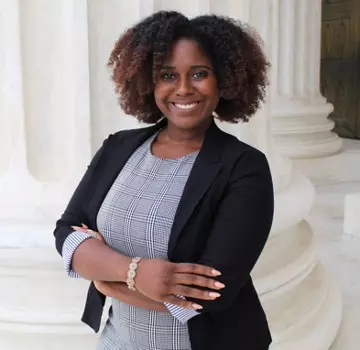Stephanie Hargrove

Dr. Stephanie Hargrove is a Clinical Associate at Duke University Medical Center. She earned her PhD in Clinical Psychology from George Mason University. Dr. Hargrove’s research interests are focused on implementing liberatory and trauma-informed practices at the system, interpersonal, and individual levels utilizing critical, participatory and action-based research methods such as Community Based Participatory Research (CBPR). Her clinical interests are to facilitate healing from trauma-broadly defined, including the impact of various forms of oppression. Through research, consulting, and clinical work, Dr. Hargrove’s mission is to be a resource for communities that have endured historical and ongoing forms of oppression.
Presentations from Facing Race 2022
State-sanctioned violence (SSV) has been a fixture of the U.S. since its founding, and resilience for BIPOC communities has always included grieving and resisting state-sanctioned violence. The breakout will be an interactive session discussing and exploring ways to apply a toolkit of strategies communities might engage to strengthen and maintain resilience while working for change. Facilitators are clinical psychologists with community organizing backgrounds, who draw from pro-Black and prison abolition organizing experiences as well as their training as community-oriented clinical psychologists. We utilize the framework of the Transconceptual Model of Empowerment and Resilience (TMER) to conceptualize the process of community resilience, including the five sets of resilience resources: skills, community resources, self-efficacy, knowledge, and maintenance (Brodsky & Cattaneo, 2013). The toolkit draws on psychology research on resilience, brought into conversation with organizing efforts among populations targeted by SSV. Strategies are presented not as a means to better cope with SSV, but rather as methods for communities contending with SSV to build internal sustainability that shores up their efforts in procuring safety, healing, justice, and ultimately, uprooting white body supremacy. Drawing from the ongoing efforts of community stakeholders reflects our belief that communities are already fostering and have the capability to intentionally actualize these resilience resources. The toolkit is meant to be of practical use for organizers, community members, and psychologists as they work to support community resilience and build a society free from state-sanctioned violence.